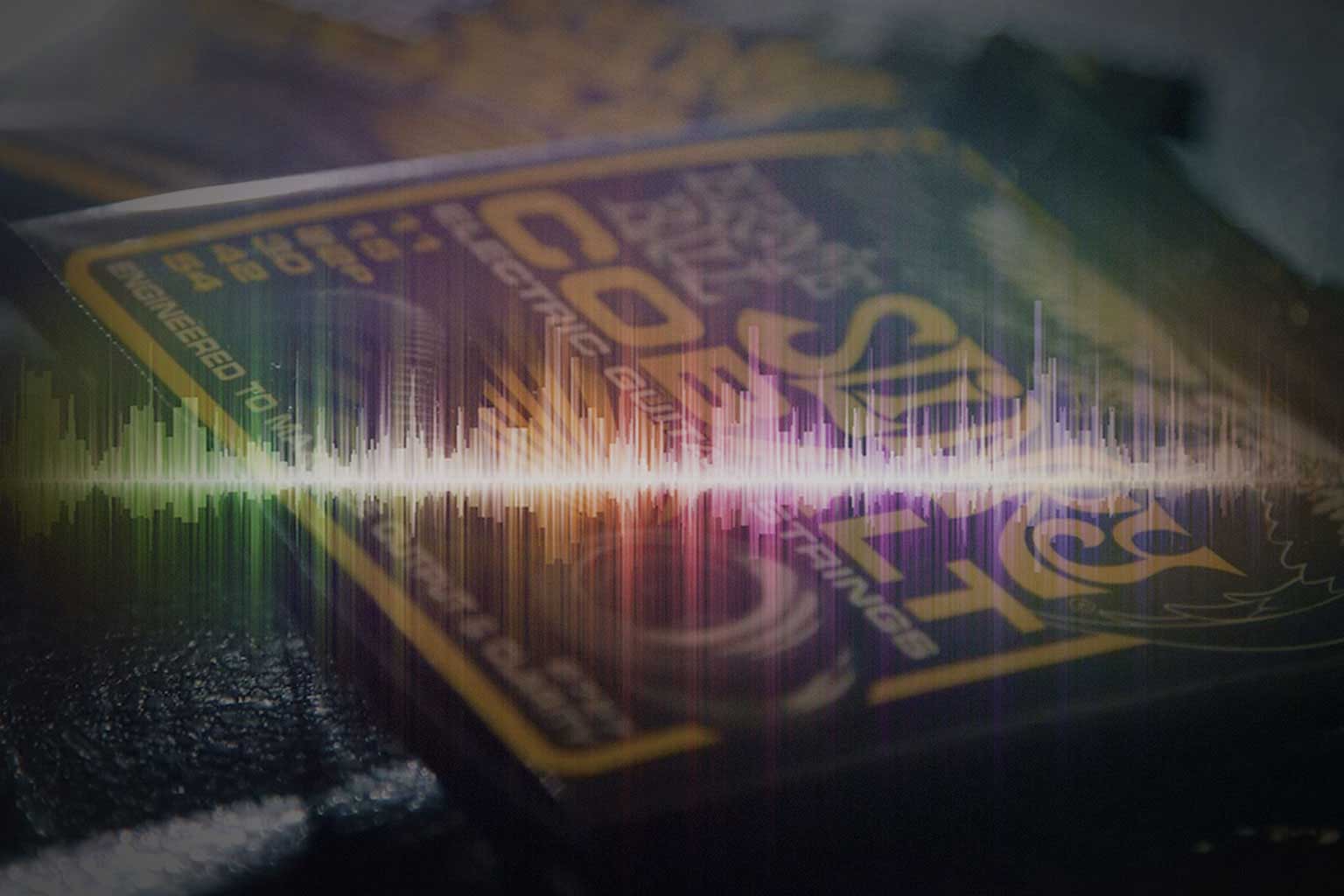Transcript
Tim McIlrath:
When I first found a guitar, it was like this whole different language. All of the unnamed emotions that are sort of existing in a hurricane inside your head, especially as a young kid, because I was probably 12 or 13 when I started playing. All of those things that you didn't know how to get out, you didn't know what they were, you couldn't put them into words. You could all of a sudden put them into chords. You could translate it through an instrument. The guitar was like a language. Each chord was like a sentence. Each part was a paragraph or a chapter and then, you could create a whole story out of just playing this thing and I don't know, I became obsessed.
Tim McIlrath:
When I first heard punk music, it sounded as if somebody had broke into a radio station and wrestled the mic away and was like, "Now you're getting this." It sounded offensive, you know what I mean? It sounded like someone was doing something wrong.
Tim McIlrath:
Once I heard punk rock, it made me want to really learn how to play guitar because when you heard, whether it was eighties hair metal or the big bands of the day, that stuff was on a pedestal. Those guys were uber-talented. That was like we are not human beings. We are next level superheroes playing blazing solos with teased out hair and spandex, you know, and you can't do what we do. But when I heard the Ramones, and I heard Minor Threat and I heard all of that, then I was like, "Wait, this sounds like something that I can be a part of."
Tim McIlrath:
I had an electric by the time I was like 12 or 13. I was more interested in creating my own thing, writing my own stuff than I was trying to learn a bunch of songs that I could use as party tricks. I started writing songs, probably like 13 or 14, like eighth grade going into high school.
Tim McIlrath:
I never saw myself playing in a band or being a musician as a long-term thing. I saw it as something that I was doing because I couldn't not do it. When I got home from school or work, it's the first thing I wanted to do. And then, I lived in a punk house with a bunch of friends and we'd go in the basement and we would just play, you know? And that was awesome. But I mean, realistically I thought we would all just grow up and move on and many of us did. One by one, people were just falling off and people who couldn't let it go like me, you know, were still there and I couldn't let it go. And so eventually, I found the guys that I play with now. I think when I found them too, I realized that these are guys who also can't let it go. We are stuck with this because it is what we were born to do.
Tim McIlrath:
Are you doing this? She reminds me of like the evil dogs in Ghostbusters.
Tim McIlrath:
Yeah, I mean I was probably playing Ernie Ball before I knew I was playing Ernie Ball. I was just buying the cheapest strings at whatever the guitar store was and back then, buying the single strings, that's all you could look really afford. Whenever you're broke, when you go out and get that one. So, I remember the name Ernie Ball all the way back from like high school. I think it wasn't until we were on Fat Records and then we were playing Warped Tour, I feel like, when somebody from Ernie Ball approached us and was like, "Hey, you guys are great. You guys should play our strings." That was the first time someone had offered us a way that we can get these and not have to pay for them, that would be amazing. That would help us out a lot.
Tim McIlrath:
The first thing I noticed when we were on Warped Tour was that a lot of my favorite bands were playing Ernie Ball strings and those bands always sounded good. They were bands that were like lifers, you know, guys were playing for a long time. We were touring like mad men. When we started playing them, it was something that you kind of, you trusted, you know... You trusted that it would sound good. You trusted that they wouldn't break. You knew what to expect, which is good because there's so much stuff that goes on in a live show or on tour. It's not something you want to worry about. You want to know you have something that's going to work and now you can focus on the song, the show, the instrument and kind of move on with your night. They've never let us down. There's never been a problem.
Tim McIlrath:
That's the Fireside right there with the big bowling pin just past the Midas sign. Pretty much every important show that happened in Chicago and then at least most of them happened at Fireside Bowl. Seven nights a week and sometimes multiple shows in a night. Everybody was coming to Fireside Bowl and so, if you wanted to see a punk show because that's where you saw it.
Tim McIlrath:
We would just come here most nights. I lived a couple miles from here and right around doors, it would just be kids lined up on the walls here all the time to get into the show. And then the venue trying to hustle you in to try not to attract attention to the place, because I think it was kind of a mystery why there was so many just punk kids hanging out outside this bowling alley most nights. It was just... the neighborhood didn't know what was happening.
Tim McIlrath:
I mean this was it, you know? To play here was really the goal if you were a young punk band in Chicago in the nineties. None of us were very careerist about it. None of us saw a world beyond this and so this was it, to be on that stage. It was a huge status thing to be a part of that.
Tim McIlrath:
I feel like with Rise Against there's a heart and soul to this band that our audience are very much a part of. And you can feel that. You can feel that in the air when we play shows. It's like electricity and it's an emotional experience. It's an emotional exchange, which is so cool for me because I felt like growing up and like nineties hardcore, that's what the shows were. They were like a super emotional exchange. It's what separated that kind of music from a lot of like the arena rock that was happening elsewhere in my city. It was just so much more, I don't know, authentic and real and we're a band. We've always tried to like maintain that as our state has got bigger, as the crowds got bigger, as the stage got higher, the barricade was further away. You're always trying to like, how can we maintain this closeness of our audience, which we tried to.
Tim McIlrath:
Sometimes we fail and sometimes we succeed, you know? But, we're always trying to, and we're always remembering the roots of where we came from. And I hope that just like I was a kid in the front row for Rage Against the Machine at the Aragon Ballroom in Chicago in like 1995 and then, one day was opening up for them at the LA Coliseum. I hope that the kid in the front row, that one day we're like begging to open up for his band or her band. I think that's kind of... That's the awesome part of this cycle.
Tim McIlrath:
I think of Rise Against, in some ways, the same way I look at a college prep professor teaching the one on one class every year. Rise Against is a band that we are certainly not a band that everyone's looking to like reinvent the wheel. We're going to do some crazy Radiohead left turn and like, you know, make some music that's going to spark some new direction of music. We are a nuts and bolts, four guy punk and hardcore band, you know? But that's okay, because if you're a college professor and you're teaching that one on one class every year, you're kind of teaching the same class every year. But, the people that are coming in every year are different. The world still needs you to do that. The world needs you to introduce these ideas to an audience that has not yet heard them. That's the way I look at Rise Against.
Tim McIlrath:
Before we get too ahead of ourselves, I realize that our audience is oftentimes a younger audience, but even for our fans that stick around, our songs serve as either reminders or ground rules, or just like the basic information about the way we view the world. I feel like there's a lot of room for that to exist in this musical landscape.



















